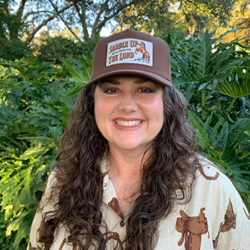 How many of you feel the Global Shutdown changed your priorities—financial or otherwise—over the past two years? Just know, you’re not the only one! Fidelity Investments recently published a study that intrigued me. This study was their 2022 State of Retirement Planning study analyzing generational responses to the impact of COVID-19 on their financial outlook. According to Fidelity’s study conducted in February of this year, they discovered that 55 percent of the Next Generation, investors ages 18 to 35, put their retirement planning on hold during the pandemic and that 45 percent “don’t see a point in saving until things return to normal.“
How many of you feel the Global Shutdown changed your priorities—financial or otherwise—over the past two years? Just know, you’re not the only one! Fidelity Investments recently published a study that intrigued me. This study was their 2022 State of Retirement Planning study analyzing generational responses to the impact of COVID-19 on their financial outlook. According to Fidelity’s study conducted in February of this year, they discovered that 55 percent of the Next Generation, investors ages 18 to 35, put their retirement planning on hold during the pandemic and that 45 percent “don’t see a point in saving until things return to normal.“
The Next Generation is dealing with volatile markets and the fun balancing act of living your life today and preparing for your future 5, 10, or 30 years down the road. Retirement planning is not the priority now because it is 25 to 35 years away. However, those future needs do not disappear because you ignore them.
 So how do you balance meeting your needs today and needs for the future?
So how do you balance meeting your needs today and needs for the future?
The biggest game-changer in balancing current and future goals for our generation is determining our “why.” What do you want to accomplish and why? What motivates you? This method is commonly used in Cognitive Behavioral Therapy…and by toddlers. For a good reason! This idea was made popular by famed author and speaker Simon Sinek. Ultimately, his premise was that we should use our why, or our purpose, to drive us to become our best selves on a psychological and biological level instead of just going through the motions. If you want to learn more, check out his original TEDx Talk here.
 Let’s look at an example of “finding your why” when it comes to your personal finances: A goal for today could be that you want to pay off your student loans.
Let’s look at an example of “finding your why” when it comes to your personal finances: A goal for today could be that you want to pay off your student loans.
You may start with, “I want to pay off my student loans.”
Why do you want to pay off your student loans?
“I want to pay off my student loans because I don’t want to pay any more interest than I already have, and I don’t want to owe someone.”
Why don’t you want to owe someone?
“I want to be financially independent and do not have money going out every month for something in the past because it’s taking away from my future today.”
By digging a little deeper than your first statement, you are now motivated to do the action: pay off student loans. You are motivated more deeply because you want to free up that monthly payment to use it for your present-day and future needs. You could delve further, but this is an example to get you started.
Everything changes when we add intention and purpose to our financial plan and other goals.
We are more motivated to pursue those goals wholeheartedly to create what we really want. When we know our “why,” we will not let our emotions or nerves deviate our path toward our goals, even when the markets and economies feel daunting. I am right there in the midst of the balancing act with you. Let’s keep finding and remembering our “why” together!
June 2022

 So how do you balance meeting your needs today and needs for the future?
So how do you balance meeting your needs today and needs for the future? Let’s look at an example of “finding your why” when it comes to your personal finances: A goal for today could be that you want to pay off your student loans.
Let’s look at an example of “finding your why” when it comes to your personal finances: A goal for today could be that you want to pay off your student loans.


